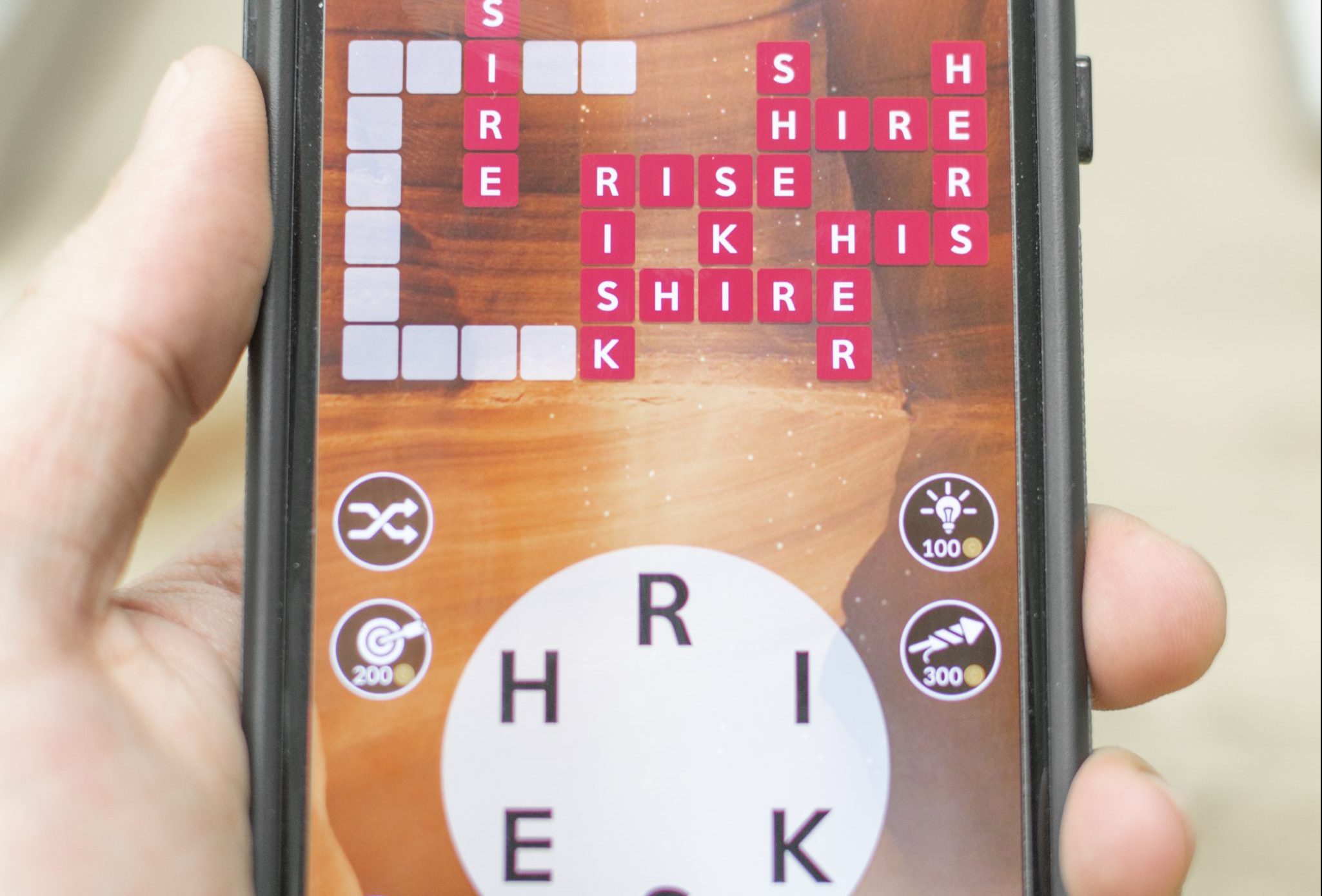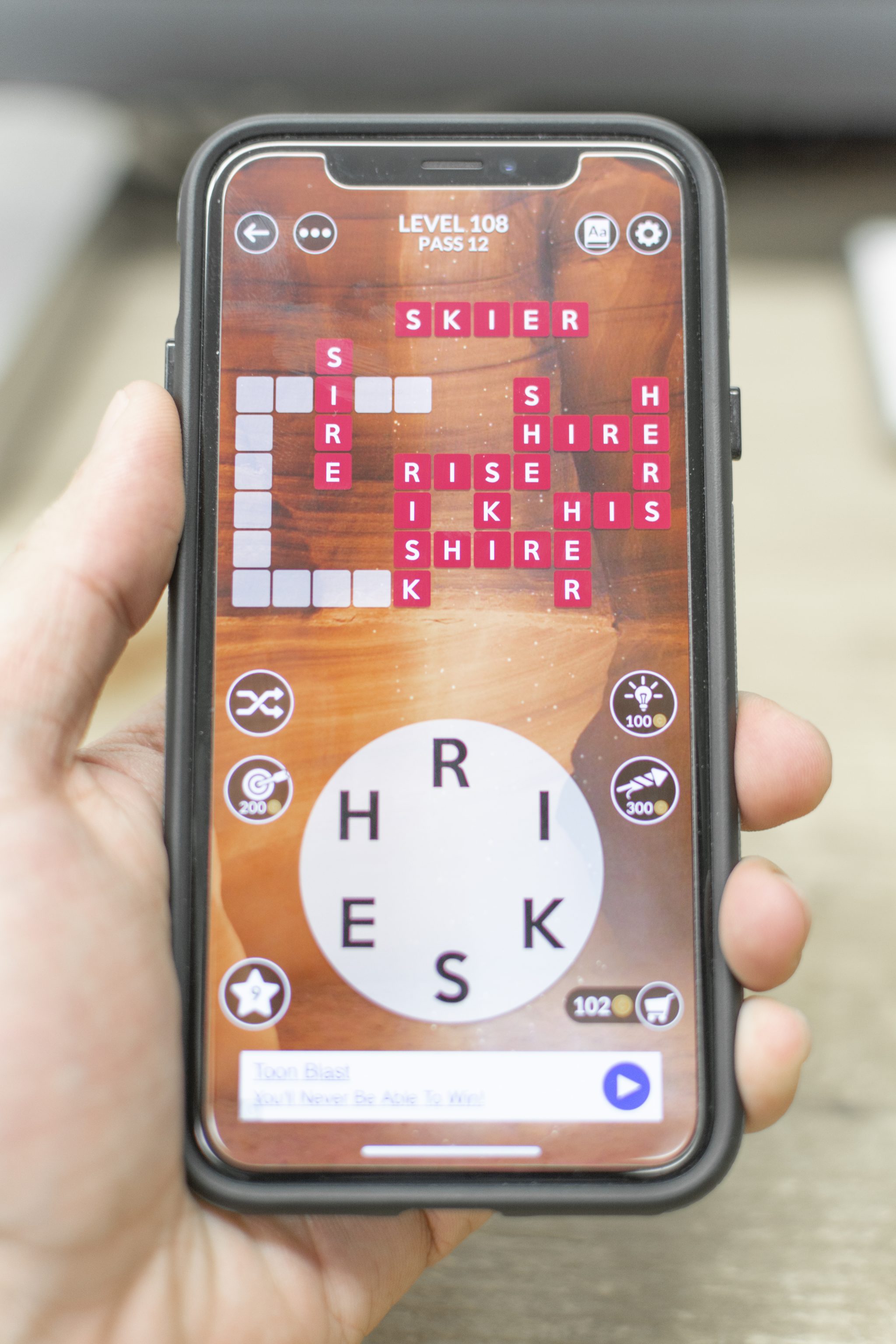Phone games can have surprising benefits


From puzzle games like Candy Crush or Tetris, to card games like Texas Hold ‘Em, to strategy games like Clash of Clans and word games like Words With Friends, the rise in mobile and Facebook games have made a noticeable impact on our society as popularity towards “social games” have skyrocketed.
Since October 2017, Facebook has been investing heavily in its “Instant Games” category of site entertainment. In order to compete with Apple’s App Store, Facebook began offering games within their “Messenger” app and encouraged the monetization of those games.
In a 2017 survey by Medium, where 1070 “mobile gamers” were asked their usage and preferences of messenger games, the two highest choices were “puzzle” games, at 60 per cent, and “word” games, at 44 per cent.
Overwhelmingly the survey also noted that, for those who play games on a messenger app, over 60 per cent prefer to play “social games” as opposed to “single-player games.”
But what are the implications of playing games like these on a consistent basis?In July, 2018, VITA — a Canadian online lifestyle magazine — published an article discussing some of the health benefits of playing mobile games.
Among the noted benefits were mood enhancement, improvement of social skills, “brain sharpening” and the ability to spark interest in other pursuits.
For example, if you played Candy Crush long enough, perhaps it might encourage your long-dormant desire to become the next Willy Wonka — without the questionable labour practices, of course.
For those who may find it difficult to socialize, or else wish to enjoy long-distance activities with friends, these online games provide a fun, low-stress — and sometimes, competitive — opportunity for connecting with the people you know.
Though games like Words With Friends and others may have indirect benefits for one’s physical, emotional and social health, it is equally important to understand and remember the hazards of its excessive use.
Scrabble, the spiritual successor to “Words with Friends,” has been described by Forbes as “a game of strategy – one of detail and spatial organization and risk.”
The game gives players the chance to enhance their problem-solving skills, such as getting stuck with a particularly lousy set of letters; anticipate the future, by controlling what future spaces — such as the deadly “triple-word” tile — your opponent will be able to capitalize on; and most obviously the ability to grow your vocabulary, by learning words you never knew existed.
If the explosion of the professional gaming industry can provide any evidence to these claims, it is that nearly any game is a situation of “easy to learn, difficult to master,” meaning that there are “hard skills” — like focus, speed and the ability to process massive amounts of information — that can be mastered with enough practice.
Online games such as “Candy Crush” have been noted as helping improve skills like “delay discounting,” the concept of smaller rewards now, versus larger rewards later; risk sensitivity, choosing between small, more definite outcomes or larger, more uncertain ones; and overall visual processing of information.
However, it is important to make note of the negative implications of its over-consumption. In June 2018, the New York Times published an article — amongst the myriad that exists — outlining the World Health Organization’s inclusion of “gaming disorder” in the eleventh edition of the International Classification of Diseases (ICD-11).
In the article, Dr. Petros Levounis, the chairman of the psychiatry department at Rutgers New Jersey Medical School, discussed the implications of online gaming addictions.
As fun and exciting as Candy Crush may be to play, Levounis notes that “I have patients who come in suffering from an addiction to Candy Crush Saga, and they’re substantially similar to people who come in with a cocaine disorder.”
Though games like Words With Friends and others may have indirect benefits for one’s physical, emotional and social health, it is equally important to understand and remember the hazards of its excessive use — especially after you hit that 100+ word. Your ego may thank you, but your friends certainly won’t.


